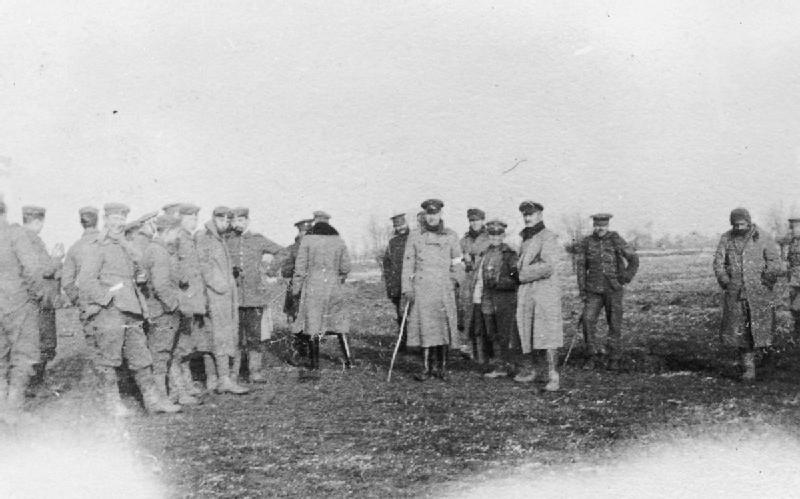
Happy Christmas, war is over. The song has been played to death on the radio, but with Washington’s declaration that the Iraq war is now officially over, John Lennon’s lyrics will likely bring a tear to the eyes of many American mothers. With Christmas being a time when families travel sometimes thousands of miles to reunite, the separation between those on the front lines and those worrying at home becomes all the more pronounced.
Perhaps the most famous – and undoubtedly the most touching – account of Christmas at war stems from the early 20th century. In 1914, only months into WWI, a series of widespread unofficial ceasefires took place along the Western Front. On Christmas Eve and Christmas Day, German and British soldiers (and to a lesser degree some French) independently ventured into ‘no man’s land’ and exchanged greetings and souvenirs, and even played a friendly game of soccer. The last survivor of the Christmas truce gave a haunting account of how he witnessed this spontaneous act of humanity:
“The words drifted across the frozen battlefield: ‘Stille Nacht. Heilige Nacht. Alles Schlaft, einsam wacht’. After the last note a lone German infantryman appeared holding a small tree glowing with light. ‘Merry Christmas. We not shoot, you not shoot.’”
The Christmas truce of 1914 was deemed “one human episode amid all the atrocities,” but there is evidence that small-scale Christmas truces between opposing forces continued throughout WWI.
Although there were certainly similar individual attempts at localized truces during World War II, the overall picture looked very different from those unusual days in 1914.
Let’s take a look from the perspective of a British family on the home front: Their first wartime Christmas was marked by a landmark speech by King George VI, which firmly established the British tradition of Royal Christmas Broadcasts. Little did George VI know that it would be another five Christmases before the war would finally be over. In 1940, a short break in bombing over the holiday provided temporary respite. For many on the fronts, the day itself was “the same as any other day, except that each man received a tin of bully-beef to himself, and there was a double rum ration that night.” A year later, on 25 December 1941, Hong Kong surrendered to the advancing Japanese. The information was held back from the public – perhaps so as not to dampen the holiday spirit.
One thing that marked most families’ Christmas – other than the absence of their sons – was the food. The last WWII wartime Christmas may be remembered for the Christmas treats (“an extra 1 1/2 pounds of sugar, 8 pennyworth (3.5p) of meat, and half a pound of sweets”) as much as for the scarcity of alcohol: Out of half a million inhabitants of four London boroughs, only one woman was arrested over the holiday for drunkenness.
The nature of wars has changed dramatically since (read this contemporary account of Christmas on the front line), but Christmas and war for many remain as irreconcilable as the Pope and contraception. Given the day’s religious meaning, one may expect Islamic terrorists to specifically target the holiday to inflict even greater symbolic damage. There have been a few such calculated attacks in the past: The Christmas Eve bombings in Indonesia for example, or the attempted ‘Underwear Bomb’ attack. Overall however, as the Economist points out, the most sophisticated terrorists pick their attack dates based on the likelihood of success.
Sadly enough, successful terrorist attacks become well-known symbolic dates on their own.

